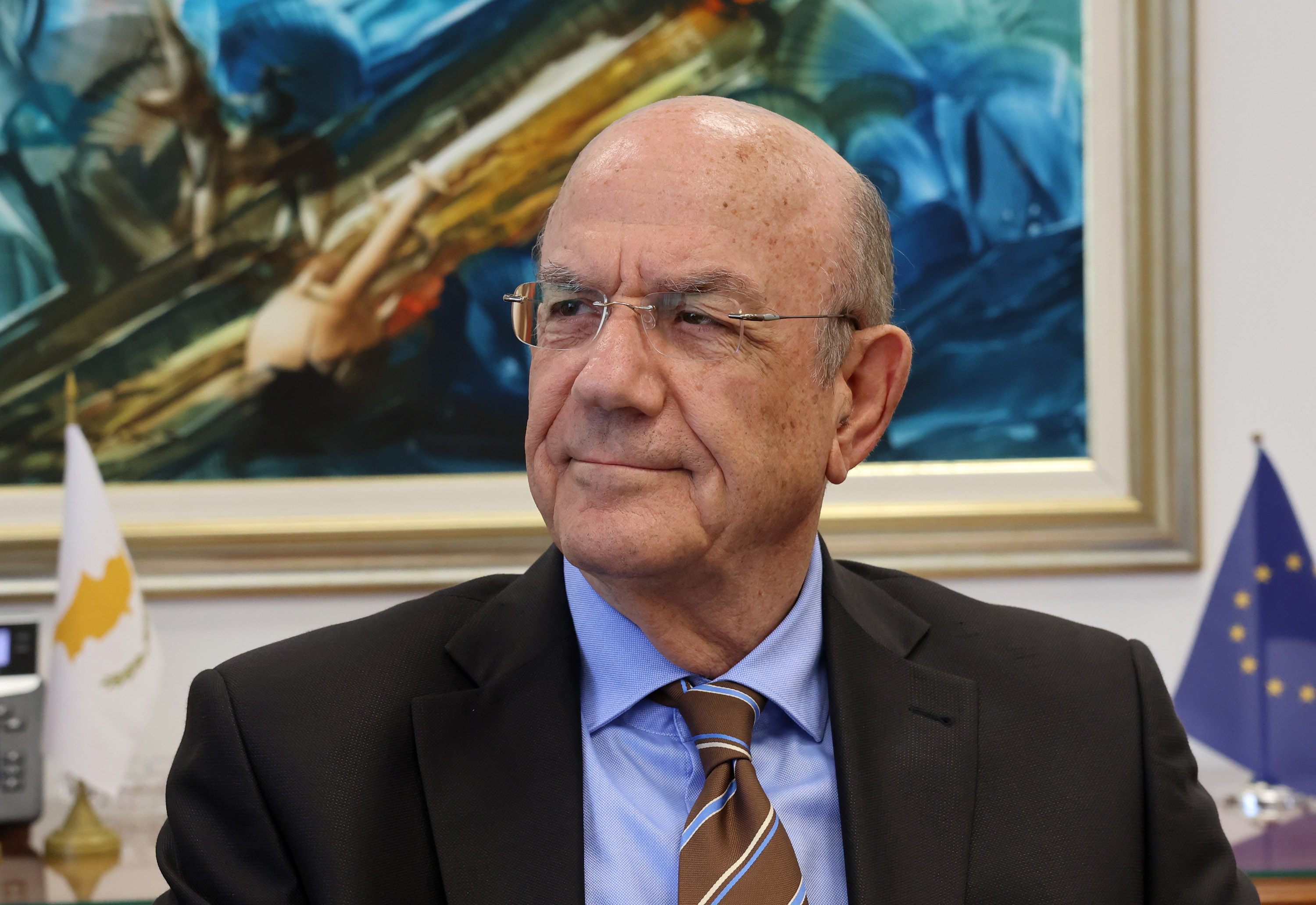Finance Minister Makis Keravnos on Wednesday threatened to scrap his tax reform plans in their entirety if parliament makes too many amendments to the current plans.
Speaking after the day’s cabinet meeting, he said he had informed the leaders of all political parties represented in parliament of his plans at a previous session of the National Council, and that “the only request” he received was that “we meet again”.
That meeting, he said, will take place on September 15.
He did stress that he is open to “positive ideas”.
“I want to hear solutions, and I am ready to adopt anything positive which has escaped us,” he said.
On this matter, he said that open consultations regarding the government’s tax reform plans are “perhaps the largest consultation which has taken place” for any set of bills, and that “public and private meetings” have been going on “for over a year”.
“We are talking with various bodies, such as [the employers’ and industrialists’ federation] Oev, [the Cyprus chamber of commerce and industry] Keve, and others, and there are great convergences on all issues, so I do not understand some reactions coming from some,” he said in response to the criticism his plans have received in some quarters.
He added that critics of his plans “should in the end stop undermining progressive ideas and actions, which are progressive for the economy”, and then said that many criticisms were being made “at the altar of pre-election expediency”.
“If we cannot have the right tax reform, after 23 years, I will not be prepared to submit a truncated tax reform bill, which will not serve the interests of the middle class, ordinary workers, and all taxpayers, but also of our businesses,” he said.
He was then asked to comment on statements made by fiscal council chairman Michalis Persianis earlier in the day, with Persianis having told news website InBusinessNews that the plans “lack ambition and imagination”.
“I do not deal with fantasies. If there are visions which we do not have, it would be good if they told us about them,” Kervanos replied.
He then went on to extol the virtues of his plans, stressing that “there must be a fairer distribution of the tax burden, a strengthening of the middle class, a strengthening of entrepreneurship”, before going on to point out that for businesses, the government intends to reduce the withholding tax on the distribution of actual dividends from 17 per cent to five per cent.
This particular change, he said, will be “a great relief”, and will allow Cyprus’ economy to “continue to show the resilience and growth which is among the best in the European Union”.
He added that his plans have been reviewed by experts on EU affairs and have been deemed to be in line with EU tax guidelines.
“We do not intend to terrorise anyone, but we are determined to crack down on tax evasion and tax avoidance, which, according to estimates made by the University of Cyprus, could be as high as 25 per cent,” he said.
“No one should worry that we will create a police state, but we will implement provisions which will not allow this tax evasion to exist, which, at the end of the day, is at the expense of all taxpayers, especially those who meet their obligations.”
The government has aimed for the tax reforms to be implemented at the beginning of next year, with President Nikos Christodoulides having set out the plans in February.
Plans include raising the tax-free income threshold to €20,500 per year, an increase of €1,000 from its current level, at which it has sat since Cyprus introduced the euro in 2008.
Additionally, Cyprus’ 35 per cent top income tax rate will now only apply to those earning more than €80,000 per year, rising from its current level of €60,001.
Christodoulides promised his reforms will strengthen Cyprus’ middle class, which he described as the “foundation of every prosperous and democratic society”.
The most notable of his planned reforms is the increase in individuals’ tax-free incomes, while he also promised a “series of significant tax deductions which take into account the needs of households and the composition of the family”.
In addition to the €1,000 additional tax-free amount, parents will receive an extra €1,000 for every dependent they have, while Christodoulides’ plan also foresees €1,500 of tax-free income for every parent who is either buying their first house or renting, and €1,000 for a “green investment” on the part of every parent.
Single parents will receive double the ringfenced tax-free amount.
Christodoulides also promised that young people will be “essentially supported” with tax relief incentives for parents, which he said will “further encourage the employment of women and respond to structural, long-term distortions”.
At the same time, he said corporation tax will increase from 12.5 per cent to 15 per cent, bringing Cyprus into line with European Union requirements.
Since then, those plans have been added to by new measures aimed at combating tax evasion, including plans to allow authorities to seal off businesses which repeatedly fail to issue receipts or invoices, criminalising the non-payment of income tax, and raising the fines levied at tax offenders.






Click here to change your cookie preferences